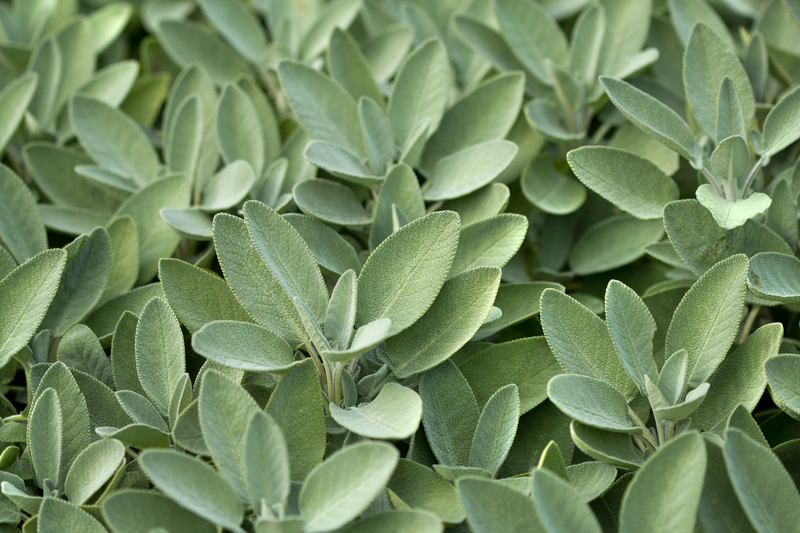From Rubbish to Fertile Ground
Posted on 14/06/2025
From Rubbish to Fertile Ground: Transforming Waste into Sustainable Soil
Imagine a world where every banana peel, wilted salad leaf, or grass cutting stops being 'garbage' and instead becomes the nutrient-rich foundation for new life. The concept of turning rubbish into fertile ground is not merely a vision for the future--it's an accessible, practical solution available to communities and individuals today. In this comprehensive article, we'll unveil the science, principles, and step-by-step guidance on how to convert waste into productive soil. You'll also discover why transforming rubbish into fertile ground is a cornerstone of sustainable living and climate action.
Why Transforming Rubbish into Fertile Ground Matters
Globally, over 2 billion tonnes of solid waste are produced every year. Shockingly, a significant portion is organic matter--food scraps, yard clippings, and agricultural residues--that ends up clogging landfills and releasing greenhouse gases. Yet, this so-called 'rubbish' is actually a goldmine of nutrients waiting to enrich our soils and boost food security.
- Reduces landfill waste: Diverting organic rubbish from landfills cuts methane emissions, a powerful greenhouse gas.
- Improves soil quality: Composting breaks down organic waste, restoring essential nutrients to the earth, promoting plant growth.
- Supports biodiversity: Healthy, nutrient-rich soils support greater plant and microbial diversity.
- Saves money: Homemade compost replaces the need for chemical fertilizers, decreasing household and farming expenses.

The Science of Soil: How Rubbish Turns into Fertile Ground
Turning rubbish into fertile ground relies on the natural process of decomposition -- the same cycle that sustains forests and grasslands around the world. When bacteria, fungi, and earthworms break down organic matter, they transform it into humus, a dark, crumbly substance rich in essential nutrients.
The Composting Process
Composting is the controlled breakdown of organic rubbish. To create fertile ground from waste, you must provide:
- Carbon-rich 'browns' (e.g., dried leaves, paper, straw)
- Nitrogen-rich 'greens' (e.g., fruit scraps, vegetable peels, grass clippings)
- Oxygen (aeration by turning the pile)
- Moisture (damp, not soggy conditions)
With the right balance, microbes rapidly decompose waste, raising temperatures and destroying pathogens. The result is a dark, nutrient-rich compost--nature's perfect soil conditioner.
Types of Composting Methods
- Backyard composting: Open piles or bins in your garden.
- Vermicomposting: Using worms (typically red wigglers) in containers to quickly break down food scraps, producing exceptional fertilizer known as 'worm castings'.
- Bokashi composting: Fermentation process for kitchen waste that is quick and odorless.
- Community composting: Shared resources, turning neighborhood rubbish into a communal soil resource.
How to Start Your Journey: From Waste to Fertile Soil at Home
Ready to transform your rubbish into fertile ground? Here is a step-by-step guide to creating rich compost in your own backyard or balcony:
1. Choose a Composting System
- Compost Bin: Best for urban and suburban spaces; neat and contained.
- Compost Pile: Ideal if you have more outdoor space.
- Worm Bin: Perfect for apartments--compact and odor-free.
2. Gather the Right Ingredients
- Do compost: Fruit and vegetable scraps, coffee grounds, eggshells, grass clippings, shredded paper, leaves, cardboard.
- Don't compost: Meat, dairy, greasy foods, pet waste, diseased plants, weeds with seeds.
Tip: Chop larger pieces into smaller bits to speed up decomposition.
3. Build Your Compost Pile
Layer 'browns' and 'greens' in a roughly 3:1 ratio (browns:greens). Keep the pile moist but not wet, and aerate (turn) it every week to supply oxygen.
4. Monitor & Maintain
- Check moisture--should feel like a wrung-out sponge.
- Turn the pile regularly for airflow (every 1-2 weeks).
- Add more browns if pile smells bad, or more greens if it's not heating up.
5. Harvest and Use Your Compost
In 2-6 months, your rubbish will have become fertile ground! Sift out any large, undecomposed bits and use the finished compost to:
- Enrich garden beds and flower pots.
- Top-dress lawns.
- Mix into potting soil.
- Mulch around trees and shrubs.
Benefits of Transforming Rubbish to Fertile Ground
The transformation from waste to soil is more than a green hobby; it's a vital tool for environmental restoration, resource conservation, and stronger communities. Turning rubbish into fertile ground offers these key benefits:
1. Improved Soil Health and Structure
Compost-amended soils retain moisture better, resist erosion, and support richer microbial ecosystems. Healthy soil grows healthier, more resilient plants--reducing the need for chemical pesticides and fertilizers.
2. Climate Change Mitigation
Every banana peel you compost means less methane from the landfill. Composting organic waste is one of the simplest climate actions with big impact for individuals and communities alike.
3. Circular Economy and Resource Conservation
By looping organic waste back into food production, we reduce dependency on mined fertilizers and fossil fuels. This closed-loop approach is crucial for a sustainable, zero-waste future.
4. Local Empowerment and Food Security
Communities that can regenerate their own soil are less dependent on external inputs. Home and community composting increases local food production and resiliency to supply chain stress.
5. Less Pollution, Greener Cities
Organic waste kept out of landfills and incinerators means fewer pollutants entering waterways and the atmosphere. Meanwhile, city gardens become oases powered by local rubbish transformed into fertile earth.
Inspiring Examples: Communities Turning Waste into Gold
Across the globe, innovative projects are proving that "From Rubbish to Fertile Ground" is scalable and effective.
- Kigali, Rwanda: The city's community composting programs train residents to turn food market waste into high-quality soil amendments, boosting urban agriculture yields.
- New York City: Curbside organics collection and neighborhood compost hubs recycle tens of thousands of tons each year, providing compost for parks and urban gardeners.
- India: Many villages and towns are integrating decentralized composting and biogas to manage food waste, produce fertilizer, and even generate cooking fuel.
These examples demonstrate how every community--even the most urbanized--can benefit from regenerative, rubbish-to-soil approaches.

Frequently Asked Questions (FAQ) about Turning Rubbish into Fertile Ground
- Is home composting difficult for beginners?
- Not at all! With a little guidance and regular attention, anyone can convert kitchen and yard waste into fertile soil. Start with a small bin, add layers, and observe nature's work.
- Does composting attract pests or smell bad?
- Properly balanced compost (enough browns, moisture, and regular turning) rarely smells or attracts animals. Avoid meat, dairy, or oily foods for best results.
- How long does it take to turn rubbish into fertile ground?
- Composting can take as little as 2 to 6 months depending on ingredients, temperature, and frequency of turning.
- Can I compost if I live in an apartment?
- Absolutely! Compact worm bins and bokashi systems are perfect for small spaces and can fit under a sink or on a balcony.
Final Thoughts: Growing a Greener Future
The journey from rubbish to fertile ground is a universal opportunity to reconnect with the cycles of nature. By taking responsibility for our organic waste and transforming it into soil, we directly contribute to healthier gardens, cleaner communities, and a more sustainable planet. Whether you are an urban dweller or a rural gardener, you have the power to turn garbage into growth--and every banana peel counts.
Start today. Collect your waste, nurture your compost, and witness the miraculous transformation: from rubbish to fertile ground--the foundation for a greener world.
Resources and Further Reading
- EPA: Composting at Home - U.S. Environmental Protection Agency
- Garden Organic UK: Organic Composting
- Soil Association: Healthy Soil
If you've enjoyed this guide, please share it with others to inspire more transformations--from rubbish, to fertile ground, to abundance!
Latest Posts
Elevate Your Garden with 3 Essential Weed Tips
Keeping Garden Plants Safe During Frosty Winters
Captivating Garden Designs for Your Little Ones

